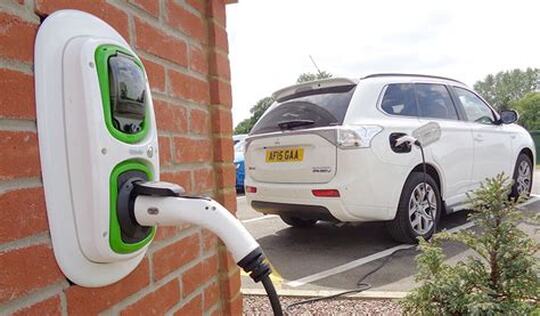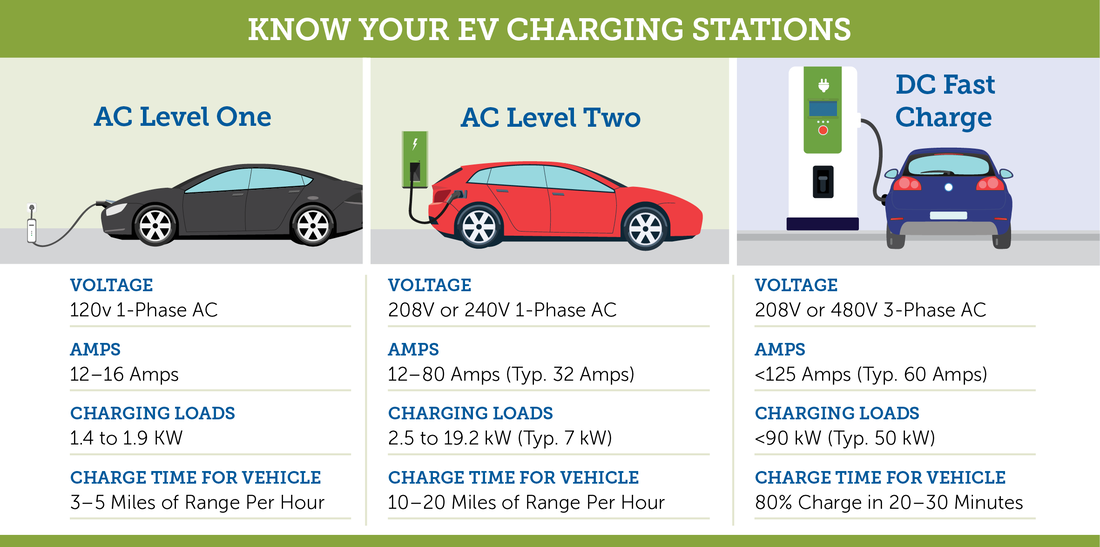|
Electric vehicles are no longer a part of the near future as many people have jumped on the electric vehicle trend. Many car makers have stepped up and offered new choices in these state-of-the-art vehicles.
SWFL Electricians will install your EV charging station, CALL TODAY! |
Home Car Charging Stations
for
Safety and Convenience
|
Aside from the obvious benefits to the environment and the future of alternative energy, the rising popularity of electric vehicles means a broader variety in car buying choices. A quick look around Sarasota shows the increase in the availability of electric car recharging points. Many stores, including grocery, big box, and hardware stores, offer at least one parking space with a recharging point to charge your car.
The benefits of adding a charging station at Sarasota home are many. To take full advantage of the convenience, homeowners should understand the benefits and the safest ways to install an electric recharging point at their Sarasota home. |
Despite internet articles that state otherwise, the best possible way to add an electric charging car point is by hiring a Sarasota-based electrician to install it. The potential risks to a do-it-yourself enthusiast run too high. Hiring a properly trained and licensed residential electrician is the only way to go.
At SWFL Electricians, we have the professional electricians that can safely install your EV charging point. Single-family homes are ideal for the installation of an electric car recharging point. Installing a recharging point in a protected space like a garage or carport is both safe and convenient. |
EV Charging Points
|
The Economic Benefits of Home Electric Vehicle Charging PointsMore than 80 percent of electric vehicle owners choose to charge their vehicles at home. Given the average electricity rates in American homes, charging an electric vehicle in a single-family home is a convenient and economical alternative to public electric recharging points.
Given the ever-changing costs of gasoline in this country, charging an electric vehicle is much easier on the wallet. The average cost of electricity is about 13 cents per kilowatt-hour in the United States. This means that to charge a vehicle with a hundred-mile trip potential the costs are comparable to running a home central air conditioner for about six hours. Electric vehicle owners can also take advantage of off-peak electric prices by charging their vehicles at night. Some utility companies offer special rates for off-peak usage of electrical appliances. Utilizing the electric recharging point during these hours would be even more economical. |
Understanding Electrical Vehicle Supply EquipmentWhen deciding to install a home charging point for an electric vehicle, it is important to understand the options and the impacts the options will have on the electrical system at home. The first step is to contact a qualified and licensed electrician.
Before a charging point can be installed, it is important to contact the electric vehicle manufacturer for specific information on the type of equipment needed and guidelines for installation. The electrician will check with local electric suppliers and follow specific installation guidelines set forth by the carmaker. |
Electric vehicle supply equipment (EVSE) is available in either Level 1 or Level 2 specifications. Level 1 equipment is more simple to install. Charging a vehicle with Level 1 equipment takes longer than Level 2 EVSE.
On average, a Level 1 EVSE system will add traveling rage to a vehicle at the rate of two to five miles per hour.
On average, a Level 1 EVSE system will add traveling rage to a vehicle at the rate of two to five miles per hour.
Level 1 electric recharging pointsLevel 1 EVSE requires an outlet and a dedicated branch circuit. Level 1 EVSE utilizes 120-volt AC plugs. No other appliances should share the same circuit with the electric recharging point. This is especially true for larger appliances like refrigerators or window unit air conditioners.
Nearly all electrical vehicles will come with a three-pronged cordset. The cord must be kept out of the weather to prevent weathering or damage. |
Level 2 electric recharging pointsA Level 2 EVSE requires a 240 V AC plug. Unlike the slower-charging Level 1 charging stations, Level 2 EVSE will add 10 to 60 miles of craving range to an electric vehicle for every hour the vehicle remains charging.
Adding a Level 2 charging station requires special equipment and a dedicated circuit amplifier of 20 to 100 amps. Installation of a Level 2 EVSE should not be attempted by anyone other than a licensed electrician. Installation of a Level 2 EVSE is more costly than a Level 1 system. Most homes come with 240-volt capability for larger household appliances like refrigerators, clothes dryers, and freezers. |


